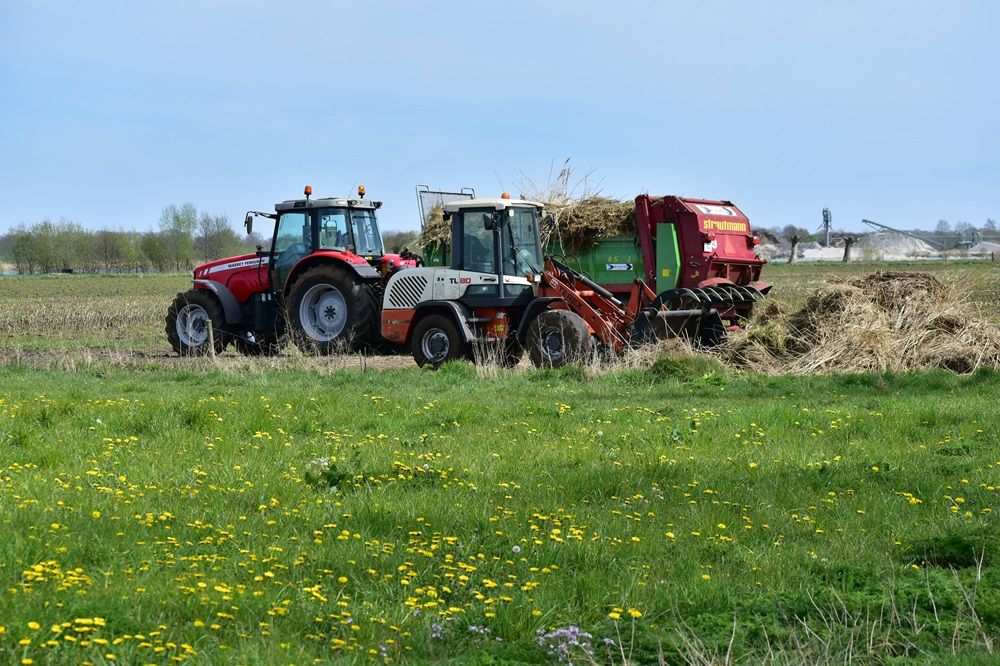In the expansive fields of South African agriculture, where the rhythmic hum of tractors and the persistent buzz of machinery resonate, the life of farm equipment is more than just a concept—it’s the heartbeat of a thriving farm. Farmers navigate the challenges of varying climates and demanding workloads, understanding the essence of the 'Life of Your Farm Equipment' becomes a crucial aspect of sustainable and successful agricultural practices. Do you know that you can now view listed items on Truck & Trailer latest E-Mag? Visit our website to find the E-Mag.
As a farmer, you comprehend the importance of reliable and efficient farm equipment. However, like any other machinery, your farm equipment can wear out over time, leading to costly repairs or replacements. Proper maintenance is crucial in ensuring the longevity and efficiency of your valuable assets. In this article, we will explore the significance of maintaining your farm equipment and how it can extend their lifespan.
But firstly, let's understand the life of farm equipment.
 Photo by Ries Bosch on Unsplash
Photo by Ries Bosch on Unsplash
What is the life of farm equipment?
The life of farm equipment is a multifaceted concept that encompasses investment, maintenance, economic impact, adaptability, technological evolution, and operator proficiency. Recognising the interconnected nature of these factors is essential for farmers seeking sustained success in a challenging environment. Furthermore, when it comes to the world of farming, farm equipment plays a significant role in ensuring efficiency and productivity.
Importance of Regular Maintenance
Keeping your agricultural equipment in good working condition provides several benefits that can significantly impact your operation's productivity and profitability. Here's why regular maintenance is crucial:
Enhanced Performance: Regular maintenance allows your equipment to operate at its optimal level, ensuring peak performance. When all parts are properly lubricated, engines are tuned, and components are in good condition, your equipment can handle tough tasks with ease, reducing the time required to complete your farming activities.
Prevention of Breakdowns: Conducting routine inspections and maintenance helps identify potential issues before they turn into major breakdowns. Catching problems early on can save you from costly repairs and prevent prolonged downtime, ensuring that your farming operation runs smoothly and efficiently.
Improved Safety: Faulty or malfunctioning equipment poses a significant safety risk to both operators and livestock. Regular maintenance ensures that safety features are in proper working condition and reduces the likelihood of accidents or injuries on your farm.
Cost Savings: Investing in regular maintenance may seem like an additional expense, but it can actually save you money in the long run. By addressing minor issues promptly, you can prevent them from developing into more significant problems that require costly repairs or equipment replacements. Additionally, well-maintained equipment tends to operate more efficiently, reducing fuel consumption and maximising productivity.
Read: From Field to Fork: The Role of Farm Equipment in Modern Agriculture
 Photo by Markus Winkler on Unsplash
Photo by Markus Winkler on Unsplash
Key Maintenance Practices
To ensure the longevity and efficiency of your farm machinery, it is essential to follow these key maintenance practices:
1. Regular Inspections: Conduct thorough inspections before and after every use. Look for signs of wear and tear, leaks, loose connections, and damaged components. Pay attention to filters, belts, hoses, and fluids, as these are prone to deterioration.
2. Lubrication: Proper lubrication minimises friction and wear on moving parts. Follow the manufacturer's recommendations for lubricating your equipment and ensure that you use the recommended lubricants.
3. Cleaning: Regularly clean your equipment to remove dirt, debris, and residues. This prevents build-up, which can impede their functionality and cause premature wear.
4. Fluid Maintenance: Check and change fluids regularly, including engine oil, hydraulic fluid, coolant, and transmission fluid. Contaminated or low fluid levels can lead to performance issues and engine damage.
5. Component Replacement: Timely replacement of worn-out components is essential for maintaining optimal performance. Keep an eye on belts, filters, blades, and tires, and replace them as necessary to prevent breakdowns.
In closing, proper maintenance is the key to extending the life of farm equipment. By investing time and effort in regular inspections, lubrication, cleaning, fluid maintenance, and component replacement, you can ensure that your machinery operates efficiently, saves you money, and improves overall safety. Emphasizing the importance of maintenance throughout your farming operation can lead to long-term success and profitability. Did you know that Truck & Trailer latest E-Mag allows you to view listed items? Find the E-Mag by going to our website.



